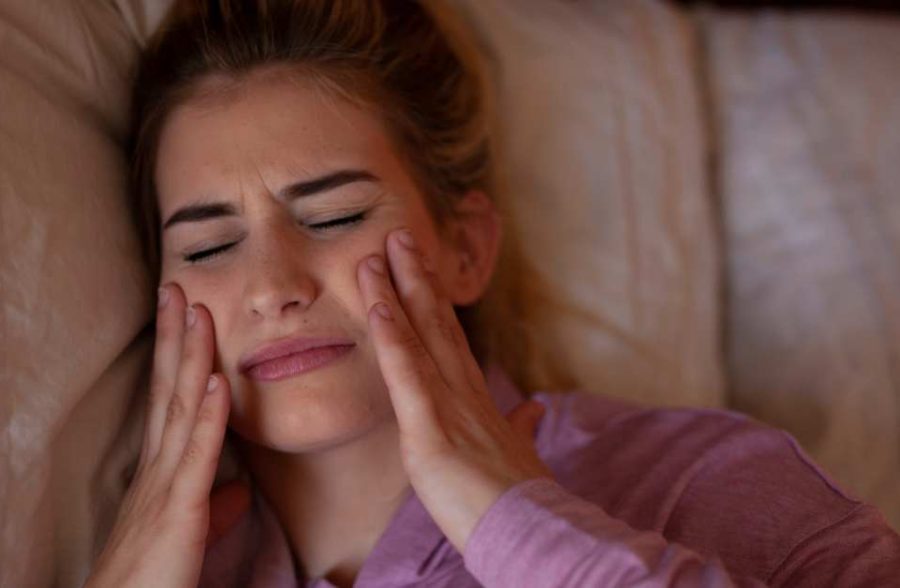Teeth grinding, or bruxism, might seem like a minor concern initially, but persistent grinding can lead to significant oral health complications over time.

Dental Structure Damage
Tooth Wear and Fractures
Persistent grinding wears down your tooth enamel – the protective outer layer of your teeth. Over time, this can lead to flattened, shortened teeth with a square appearance. The constant grinding force can also cause teeth to chip, crack, or fracture entirely.
Compromised Tooth Integrity
Once enamel is worn away, it exposes the softer dentin underneath, which is more vulnerable to decay. Unfortunately, enamel loss is irreversible. In severe cases, grinding can even wear teeth down to stumps, necessitating extensive dental work.
Dental Restorations Failure
If you have crowns, fillings, or other dental work, bruxism can damage these restorations, causing them to fail and require replacement.
Oral Tissue Consequences
Gum Problems
The excessive force from grinding can cause gum inflammation and recession. This exposes tooth roots, making them more susceptible to sensitivity and decay. Gum recession can potentially lead to periodontal disease if left untreated.
TMJ Disorders
One of the most significant long-term effects is temporomandibular joint disorder (TMD/TMJ). The temporomandibular joint connects your lower jaw to your skull, and bruxism places tremendous stress on this joint. Symptoms include headaches, facial muscle tension, pain when chewing, clicking sounds, and limited jaw movement.
Broader Health Impacts
Pain and Discomfort
Chronic bruxism often leads to persistent headaches, migraines, and pain radiating through the face, neck, and ears. Some patients experience tinnitus (ringing in the ears) and increased sensitivity to noise.
Sleep Disruption
Nighttime grinding can significantly disrupt your sleep quality, leading to daytime fatigue, irritability, and reduced ability to function.
Facial Changes
Over time, chronic clenching and grinding can cause the jaw muscles to enlarge, giving your face a more square or bulky appearance.
Extreme Cases
In the most severe cases, bruxism can wear down jaw cartilage to the point where bone grinds against bone, potentially requiring total joint replacement with titanium implants.
Quality of Life Impact
The cumulative effects of untreated bruxism—pain, dental problems, sleep disturbances—can significantly diminish your overall quality of life. Many patients don’t realise how much their grinding habit affects their well-being until they receive treatment.
Early Intervention is Key
The good news is that with proper diagnosis and treatment, including custom mouth guards and addressing underlying causes such as stress or sleep disorders, we can manage bruxism effectively and prevent these long-term complications.
If you grind your teeth, make sure to book an appointment at Mason Square Dentist where we’ll evaluate any signs of bruxism and discuss personalised treatment options to protect your teeth for years to come.

